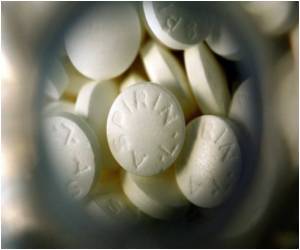Low doses of aspirin, taken daily and over the long term, cut cases of colorectal cancer by a quarter and the death toll from this disease by a third.

High doses of this cheap, over-the-counter medication have similarly been found to help prevent cancer of the rectum and colon.
But, studies have also found, the benefits may well be outweighed by the risks, such as increased bleeding from high aspirin use.
Eager to verify whether low doses can also be protective, researchers followed up four trials in Britain and Sweden, conducted in the 1980s or early 1990s, on the cardiovascular impacts of aspirin.
The study entailed looking over centralised data banks to see whether volunteers in these trials had since died or been diagnosed with colorectal cancer.
On average, the trials lasted six years, entailing volunteers who took either aspirin or a dummy lookalike pill called a placebo. The doses ranged up to 1,200 mg.
Advertisement
Taking aspirin reduced the risk of cancer by 24 percent and the risk of dying from it by 35 percent.
Advertisement
Where the reduction was most remarkable was in cases of proximal colon cancer.
These occur in the upper colon and are thus liable to be missed in lower-intestine scans for polyps, the precursor of tumours.
The authors say their study had limits, as the original trials were not designed to look at aspects of colorectal cancer, nor was data available for any deaths from aspirin's side effects.
Also, aspirin's benefit may have been somewhat over-estimated, they said.
This was because the original trials took place before colon screening for polyps became a routine practice in those countries.
Even so, the evidence has now swung the scales in favour of low-dosage aspirin for a disease that claims 600,000 deaths worldwide each year, they said.
"Our findings suggest that long-term low-dose aspirin treatment and sigmoidoscopy screening would combine to substantially reduce cancer incidence in all parts of the colon and rectum," said the lead author, Peter Rothwell, a professor at the Department of Clinical Neurology at Oxford University.
In a commentary, doctors Robert Benamouzig and Bernard Uzzan of the Avicenne Hospital in Bobigny, on the outskirts of Paris, said the study should unleash "the next logical step," of formulating guidelines for people at risk.
Colorectal cancer is the second commonest cancer in developed countries, with a lifetime risk of five percent, according to figures cited in the city.
Aspirin is believed to have a preventive effect because it inhibits an enzyme called COX-2, which promotes cell proliferation in colorectal tumours.
Source-AFP















